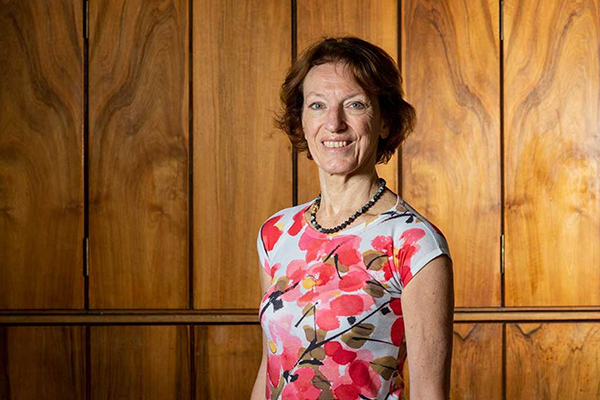The Value of Basic Research

Would Einstein have received funding?
In an era of 24/7 news and polarisation, politicians and policymakers are under pressure to deliver instant results, while the most innovative and disruptive scientists are fighting to attract funding. How, then, do we persuade leaders and funders of the value of investing in basic research, the impact of which, though potentially game-changing, may not manifest for several years – if not for decades or more?
This was the subject addressed by EMBL alumni and staff over two Coffee with EMBL sessions on 22 January and 12 February, which featured various EMBL alumni expert speakers engaging in lively, passionate and energetic discussion. As EMBO Director Maria Leptin said: “The value of basic research is self-evident to us. But how can politicians or those not trained in science know?”
Other guests appearing across the two sessions included EMBL-EBI Director Emeritus Janet Thornton; NASA Space Biology Program Director of Education and Outreach Sigrid Reinsch; MPI-CPG Director Emeritus Kai Simons; and Science Foundation Ireland Head of Research Policy Marion Boland.
As you might expect from a group of dedicated scientists with a strong and long-standing relationship with basic research, there was a sense that it is surprising – frustrating, even – that it is necessary to keep explaining the importance of basic research. But there was simultaneously an acceptance that duty lies with scientists and science communicators to advocate for the importance and safeguard the quality of their work.
Start them early
Sigrid Reinsch noted the importance of forming everyday habits that involve sharing the value of fundamental research with family, friends and colleagues, and educating people early: “Training the public at a very young age to be able to understand the role and relevance of science for our existence is really critical.”
It was argued that molecular biology is not perceived with the same glamour as physics. While widespread awareness of the Higgs Boson suggests that there is public appreciation of the beauty of scientific discovery, molecular biology has not always received similar attention.
The conversation later turned to the extent to which scientists are obliged to be good communicators. While it was agreed that scientists should be trained to communicate their research to a lay audience from a young age, Maria Leptin made the case that not all scientists are blessed with those skills “that’s okay, let them do their science, but we must have someone else to do the translation.”
Challenges and opportunities of the pandemic
COVID-19, its treatment and the race for a vaccine has brought awareness of basic research to the fore of public consciousness like never before – but it has brought new challenges, too.
Marion Boland pointed out, scientists are now in the mainstream media talking about basic research and the public has a newfound awareness of the resource that goes into vaccine production. However, politicians have frequently claimed to have been ‘led’ by the scientists, risking scapegoating them and giving a false impression of what scientists can and can’t do.
There has also been a temptation amongst some leaders to blame scientists when the data hasn’t told them what they want to hear, and the nature of electoral politics means politicians are incentivised to seek short-term wins. This may be just the beginning. As Kai Simons said: “The climate crisis necessitates innovation even more, far more than COVID.”
Capturing the impact of basic research
EMBL is extremely proud of the powerful impact research carried out in its laboratories has had on society and the world. Case studies showcasing how alumni Ilaria Ferlenghi (p. 20), Ernst Steltzer (p. 31), Wilhelm Ansorge (p. 33), Gitte Neubauer (p. 39) translated their basic research after leaving EMBL can be found in the 2019 EMBL Annual Report.
Having previously reached out to the alumni community and learned how fundamental research at EMBL has been translated into so many impactful projects and discoveries, we are keen to resume that initiative in order to amplify even more of your work and highlight the importance of basic research.
What did your research lead to? Let us know via email, and watch out for further communication from us on this soon.